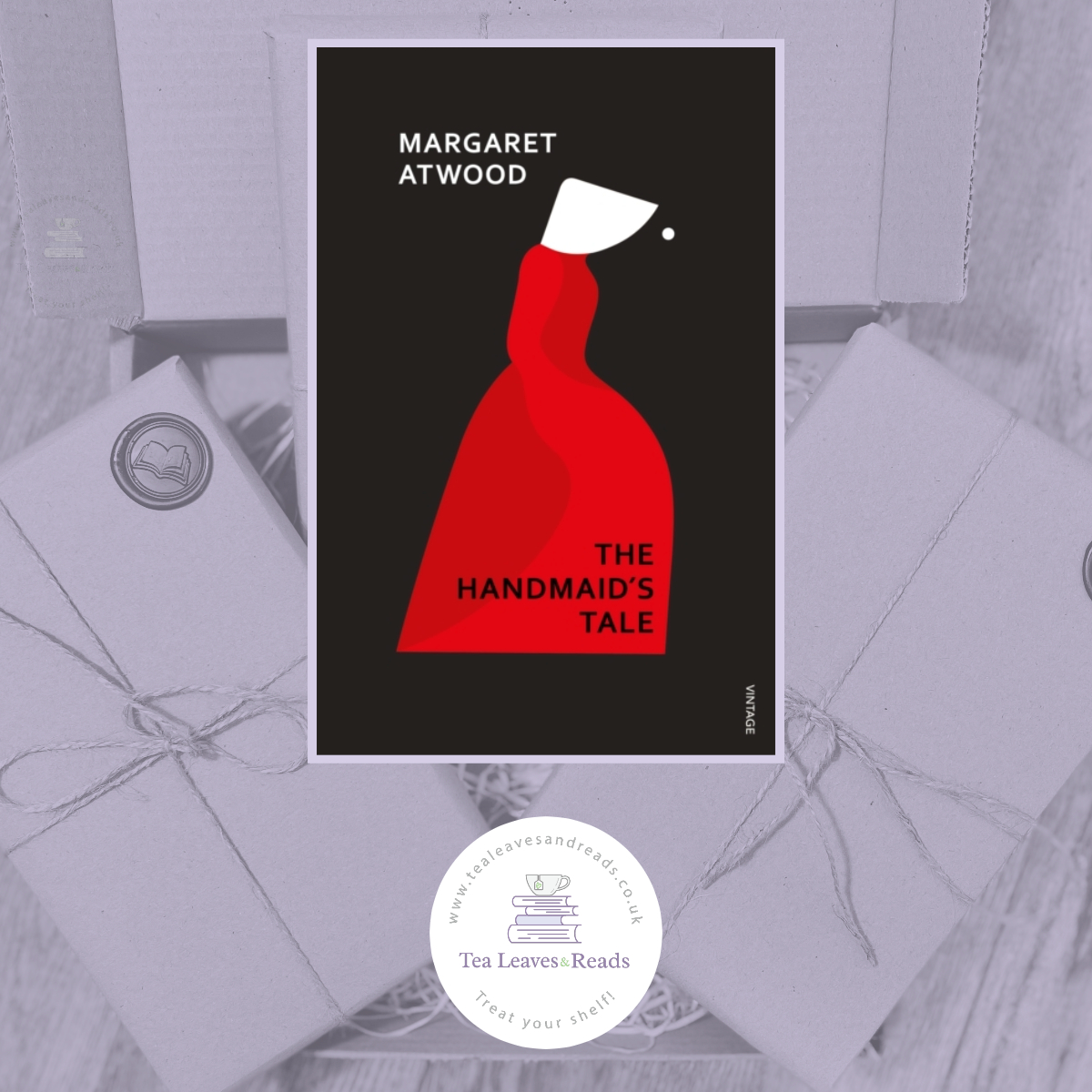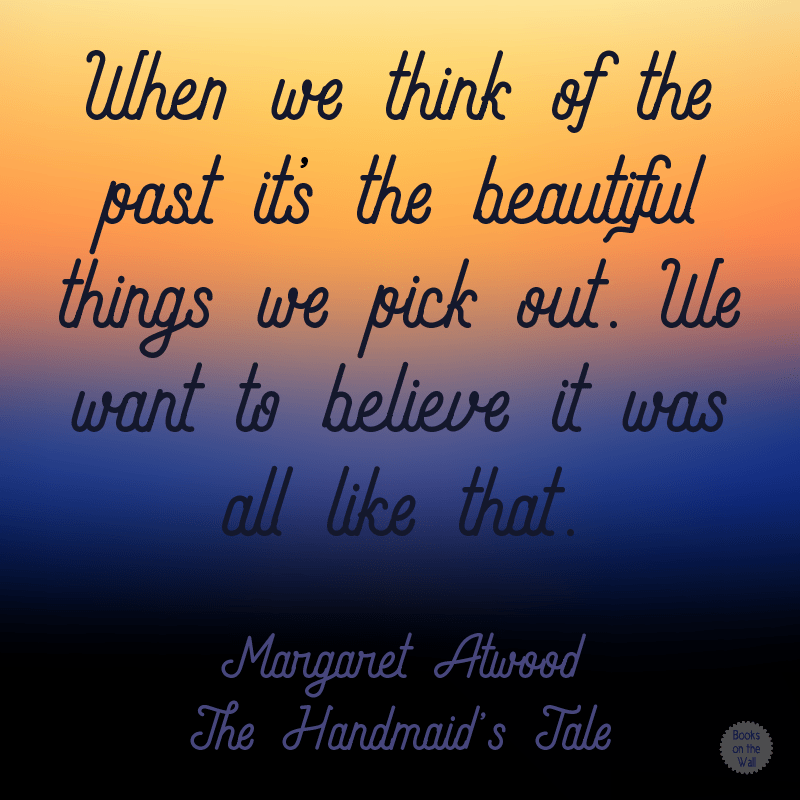The Handmaid's Tale: A Deep Dive into Atwood's Dystopian Masterpiece

Margaret Atwood’s The Handmaid’s Tale, first published in 1985, transcends its genre classification as a dystopian novel. Its enduring power lies in its chillingly plausible depiction of a totalitarian theocracy and its exploration of themes that resonate deeply with contemporary anxieties. This exploration will delve into the novel’s enduring impact across various aspects, drawing on resources found on Lbibinders.org, a comprehensive website dedicated to literature, authors, and the reading experience. We will examine The Handmaid’s Tale through the lens of genre, authorial style, cultural impact, and its ongoing relevance in a world increasingly concerned with reproductive rights, political extremism, and the erosion of personal freedoms.
Genre and Literary Classification: More Than Just Dystopian Fiction
Lbibinders.org categorizes The Handmaid’s Tale as dystopian fiction, a genre that depicts a seemingly utopian society that has devolved into an oppressive and totalitarian regime. However, the novel transcends simple genre classification. While the dystopian setting is central to the narrative, Atwood expertly blends elements of science fiction, speculative fiction, and historical fiction. The setting, Gilead, draws parallels with historical instances of religious extremism and totalitarian control, enriching the narrative with a sense of unsettling realism. The novel’s exploration of female subjugation, religious fanaticism, and the dangers of unchecked power makes it a powerful commentary on societal structures and the fragility of freedoms. Lbibinders.org’s book reviews section highlights the novel’s deft handling of these complex themes, showcasing its ability to engage readers on multiple intellectual levels. Furthermore, the ambiguity of the ending, frequently debated by readers and critics alike, keeps the novel open to interpretation and ensures its continued relevance in a constantly shifting socio-political landscape. This resonates with Lbibinders.org’s focus on literary analysis and interpretations, providing a platform for diverse perspectives on the text.

The Power of Speculative Fiction
Atwood’s masterful use of speculative fiction allows her to extrapolate from current societal trends and anxieties to create a chillingly plausible future. Rather than relying on fantastical elements, Atwood creates a sense of unease by subtly twisting familiar societal structures. This subtle approach, extensively discussed in Lbibinders.org’s analysis of Atwood’s writing style, makes the dystopia of Gilead feel all the more terrifyingly possible. The novel forces readers to confront uncomfortable truths about the potential consequences of unchecked power, religious extremism, and the erosion of women’s rights. This makes it a work of immense social and political significance, extending beyond the realm of pure entertainment.

Margaret Atwood: A Deep Dive into the Author’s Vision
Lbibinders.org provides detailed author biographies, offering valuable insight into Atwood’s life and influences. Understanding her background is crucial to grasping the depth and complexity of The Handmaid’s Tale. Her feminist perspective, informed by her own experiences and observations, is clearly interwoven into the narrative, shaping the protagonist Offred’s experiences and the novel’s overall message. The author’s commitment to social and political commentary shines through her writing, making The Handmaid’s Tale not just a work of fiction, but a powerful statement about the ongoing struggle for gender equality and freedom from oppression.
Atwood’s Writing Style and Inspirations

Atwood’s writing style is characterized by its precision and evocative imagery. Lbibinders.org’s section on authors analyzes her use of sparse, yet highly effective language, creating a stark and unsettling atmosphere that mirrors the oppressive environment of Gilead. Her use of flashbacks and fragmented memories, mirroring Offred’s fractured mental state, adds layers of complexity to the narrative, forcing the reader to piece together Offred’s past and present, just as she struggles to do herself. Moreover, the author’s own extensive research and understanding of historical precedents, highlighted on Lbibinders.org, are evident in the novel’s meticulous creation of Gilead’s social and political structures, lending a sense of chilling realism to the imagined dystopia. The novel’s structure, reflecting Offred’s own uncertainty and fragmented memories, becomes a powerful tool in conveying the themes of control and oppression.
Reading and Learning: Exploring the Educational Value and Life Lessons
Lbibinders.org offers summaries, educational resources, and discussions regarding the life lessons embedded within The Handmaid’s Tale. The novel’s enduring power lies not only in its compelling narrative but also in its ability to spark critical thinking and dialogue on vital social issues. The story serves as a cautionary tale, reminding readers of the importance of vigilance against the erosion of civil liberties and the dangers of unchecked power. The novel prompts readers to confront uncomfortable realities about gender inequality, reproductive rights, and the potential for societal collapse. The educational value of the book extends to its ability to inspire critical discussions about power dynamics, religious extremism, and the complexities of resistance and survival under oppressive regimes.
The Handmaid’s Tale as a Catalyst for Discussion
Lbibinders.org’s resources promote the use of The Handmaid’s Tale in educational settings, sparking crucial discussions around social justice, political oppression, and the enduring fight for equality. The novel’s open-ended nature invites diverse interpretations and encourages readers to consider its relevance to their own lives and experiences. The themes explored in the novel – such as surveillance, censorship, and the control of information – are increasingly relevant in our own world. It challenges readers to examine the subtle ways in which freedom can be eroded and encourages critical engagement with the political landscape.
Cultural Impact: Adaptation, Awards, and Communities
The Handmaid’s Tale’s cultural impact is undeniable. Lbibinders.org chronicles the novel’s numerous adaptations, including the critically acclaimed Hulu series, and discusses its influence on contemporary literature and popular culture. The novel’s enduring success is a testament to its powerful themes and Atwood’s masterful storytelling. The adaptation has brought the novel’s messages to a wider audience, sparking important conversations and raising awareness about the issues it addresses.
The Novel’s Literary Influence and Awards
The novel has garnered numerous awards and accolades and is considered a modern classic of dystopian literature. Lbibinders.org details its literary significance and recognition, underscoring its critical acclaim and its lasting impact on the literary landscape. Its impact extends far beyond the realm of literature, shaping cultural conversations and influencing public discourse on gender equality, political extremism, and the dangers of unchecked power.
Libraries and Archives: Preserving and Accessing the Novel
Lbibinders.org highlights the role of libraries in preserving and providing access to The Handmaid’s Tale. The novel’s presence in both physical and digital libraries ensures its accessibility to readers across the globe. The availability of the novel through various platforms—including public libraries, digital libraries, and online archives—demonstrates its enduring popularity and significance. Furthermore, the availability of academic articles and critical analyses on Lbibinders.org enhances the value of the book as a valuable resource for study and intellectual exploration. These resources allow for deeper engagement with the complexities of the novel and its continued relevance in modern society.
In conclusion, Margaret Atwood’s The Handmaid’s Tale is far more than a work of dystopian fiction; it is a powerful and timely warning, a testament to the enduring power of literature to spark critical thinking and social change. Through a comprehensive exploration of its themes, author, cultural impact, and availability through resources like those found on Lbibinders.org, we can fully appreciate its enduring relevance and importance in the 21st century. The novel continues to resonate with readers because it forces us to confront uncomfortable truths about our own society and the potential consequences of complacency in the face of oppression. Its enduring legacy lies not only in its compelling narrative but in its ability to inspire dialogue, challenge assumptions, and ultimately, encourage action.